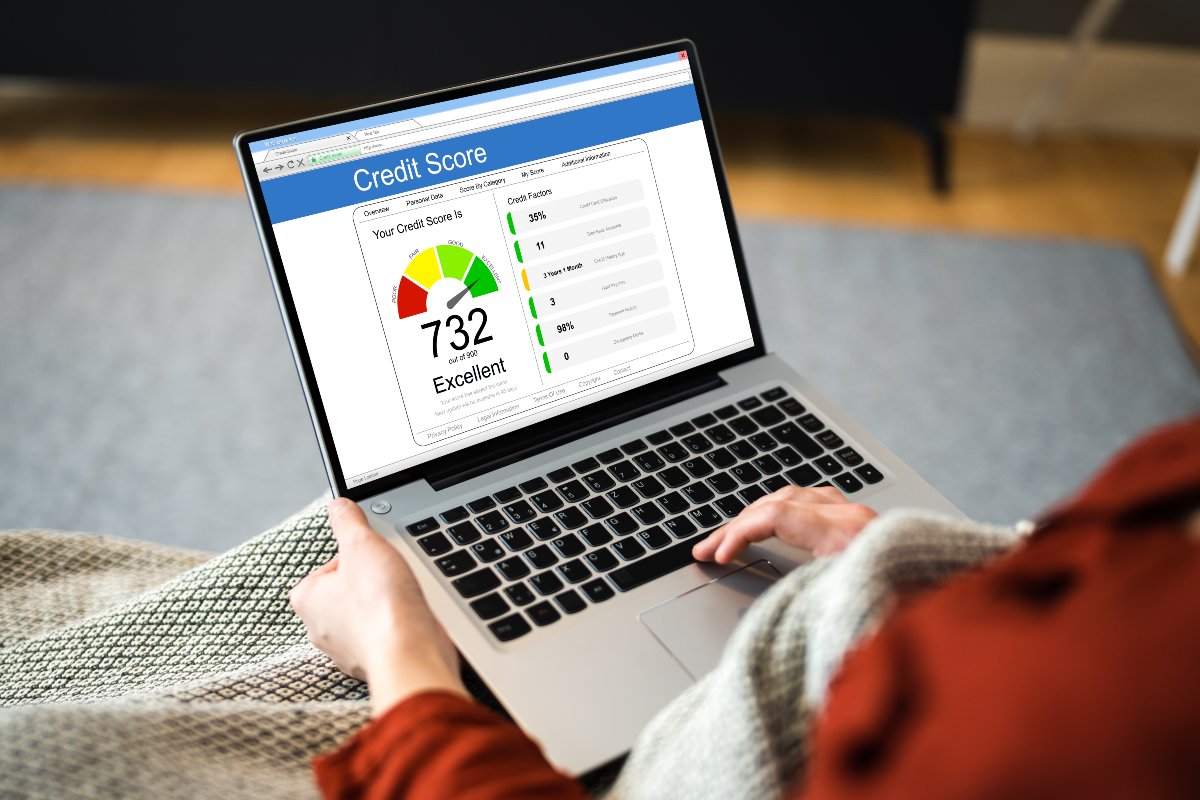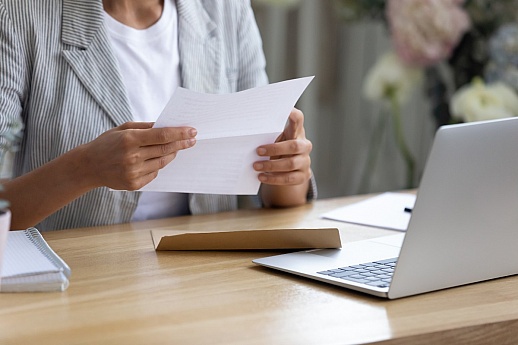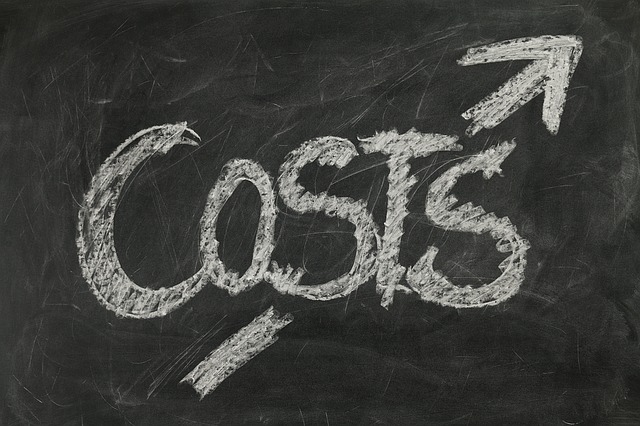Does Closing a Bank Account Hurt Your Credit?
What are the consequences of closing a bank account? In addition, does closing a bank account hurt your credit? You might wonder, but closing a bank account doesn’t generally affect credit, although it can.
Read on for tips on how to close your bank account and what to do when closing your account does negatively affect your credit.
How Closing a Bank Account Can Affect Credit
The answer to “Does closing a bank account hurt your credit?” is that closing your bank account doesn’t generally hurt your credit.
This is because financial institutions don’t report your bank details to credit bureaus. Moreover, your bank deposits, withdrawals, and daily transactions generally don’t positively or negatively impact your credit score. As a result, closing a bank account that is in good standing typically won’t affect your credit score.
Since your credit score plays a critical role in many financial decisions, you need to avoid hurting it. Specifically, credit card issuers look at your credit score to determine your eligibility for financial products and services. Moreover, your credit may impact your ability to rent an apartment and purchase a house or car.
 Did you know 90% of the leading U.S. lending institutions use FICO® Scores to assess risks associated with borrowers?
Did you know 90% of the leading U.S. lending institutions use FICO® Scores to assess risks associated with borrowers?
The Fair Isaac Corporation (FICO) credit score has the following ranges:
- 300 – 579: Very Poor
- 580 – 669: Fair
- 670 – 739: Good
- 740 – 799: Very Good
- 800 – 850: Exceptional
FICO scores are calculated based on a person’s payment history (35%), debt level (30%), length of credit history (15%), new accounts (10%), and types of credit (10%). The score represents how you manage your debt payments.
FICO scores are available from the major credit bureaus, Experian, Equifax, and TransUnion. Namely, these scores rely on the information contained in consumers’ credit reports.
Every 12 months, you can apply for your credit report from Equifax, Experian, and TransUnion. Specifically, you can request yours from AnnualCreditReport.com.
Thankfully, even if your score falls, you can take steps to boost it. Specifically, you may be able to improve your credit score by:
- Paying your bills on time
- Paying off your debt
- Opening a new credit card account only if necessary
- Closing unused accounts that cost you annual fees
- Disputing inaccuracies on your credit reports
Is It Bad to Close a Bank Account?
Are there negatives to closing a bank account? The answer is that it depends. Closing your bank account could hurt your credit if it’s been closed with a negative balance.
This is called a “bank account overdraft” and shows your bank account balance has gone below zero, resulting in a negative balance.
Specifically, if you fail to pay off your debt on time, the bank or credit union will send it to a collection agency that specializes in debt collection. The agency may report your collection account to the credit bureaus, hurting your credit score. Moreover, the collection account will stay on your credit report for up to seven years.
Additionally, your closed bank account may also be reported to Chex Systems Inc. (ChexSystems), which is a nationwide specialty consumer (or credit) reporting agency (CRA) that manages banking reports. It acts under the federal Fair Credit Reporting Act (FCRA) and provides information about your overall banking activities to banks and other financial institutions.
In turn, banks and financial institutions can use the information gathered by ChexSystems if they’re allowed to access it under the FCRA.
Credit unions could rely on this information to determine a person’s eligibility for financial products and services if the account was closed with a negative balance.
Additionally, you’ll likely have difficulty opening another traditional bank account if you close an old one with a negative balance. If this is your case, you can apply for a second-chance bank account or prepaid debit card. Both these options can give you access to banking services and the opportunity to rebuild your history.
Second-chance bank accounts are individual checking accounts that some banks and credit unions offer to individuals with a troubled banking history. A flawed banking history may stem from bounced checks, unpaid fees, or account closures.
Prepaid debit cards are similar to credit and debit cards. Cardholders pre-load cash onto the prepaid debit card and are authorized to use it online and in stores that accept credit payments, such as VISA or Mastercard. Additionally, some prepaid cards come with free ATM access.
You can obtain them from a retailer or financial services providers, such as banks and credit card companies. The card can be reloaded online, through direct deposit, or at a qualifying retailer.
Similar to a checking account, prepaid cards may come with maintenance fees.
Additionally, cardholders may be required to pay a fee for activation or when using an out-of-network ATM.
How to Safely Close Your Bank Account?
Call your bank’s customer service or visit the local bank branch when closing a bank account. You can also send a letter to your bank to close an account. In addition, you may fill out a form to request account closure or submit a written request at some banks and credit unions.
Then, the bank will check your account to see if it’s in good standing to close it safely. If you have remaining funds in your account, you’ll need to transfer them to your new account or receive a check by mail.
The Consumer Finance Protection Bureau (CFPB) recommends requesting written confirmation of your closed account. As a rule, you won’t be charged anything to your account.
However, some banks and credit unions will charge a fee for early closure if you close your account shortly after opening it. This refers to a period of 90 to 180 days.
FAQ
Does Closing a Savings Account Affect Credit?
Closing a savings account that is in good standing typically doesn’t hurt your credit score. However, banks report any account closed with an outstanding balance to ChexSystems.
So, you should close your savings account only after paying account-related fees. Otherwise, you’ll end up with a closed account with an outstanding negative balance.
Specifically, you may need to pay a fee for using an ATM, for having an insufficient balance, or for a wire transfer. As a rule, these fees are withdrawn from the funds in your account. But if you close your account without paying the fees, you will end up with a closed account with an outstanding negative balance.
How to Close a Saving Account
When closing your savings account, make sure to:
- Open a new savings account before the closure.
- Cancel automatic transfers to or from your account.
- Wait to clear any recent transfers.
- Contact your bank to make sure you don’t have a negative balance.
- Consider keeping some funds in the account for a few weeks to pay late fees before the closure.
- When the account is closed, check back to ensure you’ve left it in good standing.
How to Close a Checking Account
When closing your checking account, take these steps:
- If you’re considering a new checking account, shop around by comparing available options, rates, and minimum balance requirements from different banks.
- If you have funds in your account, transfer them to your new account or withdraw them.
- If your old account has direct or automatic deposits and withdrawals, transfer them to your new account or cancel them.
- Have some funds in your old account for pending transactions.
- After you’ve made your pending payments, withdraw the remaining balance and request account closure. You can call your bank’s customer service, visit a physical branch, or email a representative.
What Happens When Your Bank Closes Your Account?
Banks may close an account for several reasons, including inactivity, zero balance, excessive overdraft fees, too many transfers, criminal conviction, high-risk activity, identity theft, or changes at the bank.
When closing an account, the bank may notify the customer about the closure. However, the branch is not required to notify you of the closure.
Nevertheless, the bank is required to disburse any funds that are in the account. Typically, you’ll get your money through a check, minus any unpaid fees or charges if your account is closed.
If the closure wasn’t your fault, you could file a complaint with the Consumer Financial Protection Bureau. Usually, you can’t reopen your closed account, but you can open a new one.
What Should You Do If Your Bank Has Closed Your Account?
- Contact your bank and save all the written communication with the representatives. Moreover, keep notes of the phone calls and write down the representatives’ names you speak with.
- Stop direct deposits and automatic withdrawals, such as bill payments, to avoid extra fees.
- Check to make sure you have no outstanding checks associated with your account.
- Apply for a copy of your ChexSystems report.
- If your account was closed wrongly, submit a complaint to the federal Office of the Comptroller’s Customer Assistance Group.
Summary
The general answer to the question “Does closing a bank account hurt your credit” is “No.” However, closing your bank account will affect your credit if you have a negative balance left on your account.
Thankfully, even if your score lowers, you can take action to improve it. For example, you can pay your bills on time and repay your debt to boost your credit score.





